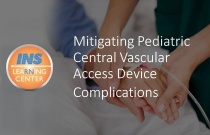HIE Data: The Value Proposition for Payers and Providers
Laura McCrary, EdD / Dirk Rittenhouse, MBA / Tara Orear
1.00 Hours
This session will explore how the Kansas Health Information Network worked with a local payer to increase provider participation in health information exchange. It will outline how the payer provided financial incentives to providers to share specific data sets and how the payer is using this data for HEDIS reporting and care ma....
Infectious Disease Rapid CDS Deployment: A Zika Case Study
Stephanie H. Hoelscher, MSN, RN-BC, CPHIMS, CHISP and Dwayne Hoelscher, MSN, RN, CPHIMS
1.00 Hours
Clinical decision support (CDS) is often a misused or overused tool within an EHR, yet if developed appropriately, it can be a life saver, and that is really its purpose. Ever since the 2014 outbreak of Ebola within the United States, there has been movement towards a more “all-hazards” approach to dealing with disasters, specif....
HIE Image Sharing for a Statewide Stroke Network
Michael Phipps, MD, MHS and Karan Mansukhani
1.00 Hours
Chesapeake Regional Information System for our Patients (CRISP), the HIE serving Maryland and DC, has implemented an image exchange service to facilitate the real-time access of emergency images for specialists at trauma centers. The first use-case is aimed at providing neurologists access to brain images as patients present at....
NYP OnDemand: The Next Generation of Care Delivery
Shauna M. Coyne
0.75 Hours
A successful telehealth-powered care delivery program is a mix of five percent technology, 15 percent process and 80 percent people. That’s the recipe for NewYork-Presbyterian’s successful NYP OnDemand program, a next-generation care delivery platform powered by telehealth. NYP’s executive leadership began designing a strategic....
Genomics Nursing and the EHR
Michelle Lardner, MS, RN-BC and Gwenyth Wallen, PhD, RN
0.75 Hours
As precision medicine and genomics become more integrated in clinical care at healthcare organizations, there are implications not only for physicians but nursing staff as well. Learn how one healthcare research organization partnered with its EHR to develop functionality and integrate genomics into daily nursing routines based....
Employment and Substance Abuse
Yvonne Martinez, CADC-CS, ICCS, ICADC, NCAC-I, CRPS
3.00 Hours
Employment and Substance Abuse offers training to develop an employee assistance program and a drug-free workplace. Five steps critical to the development of a comprehensive substance abuse program in the workplace are introduced along with the role of employees and employers. Acknowledging that seventy percent of all illegal d....
Domestic Violence and Substance Abuse
Yvonne Martinez, CADC-CS, ICCS, ICADC, NCAC-I, CRPS
6.00 Hours
Substance Abuse Treatment and Domestic Violence presents treatment providers with an introduction to the field of domestic violence. It gives providers useful information on the role of substance abuse in domestic violence—both among the men who batter and the women who are battered. Useful techniques for detecting and eliciting....
Managing Distress During The Dying Phase in Palliative Care
Michael Bramwell
This session discusses heightened distress in patients at the end of life. It offers strategies and suggestions for professionals to identify distress and to provide appropriate support for the patient, relatives and carers during the dying phase - the last few weeks of life. This session was reviewed by Michael Bramwell, Jane W....
Introduction to Quality Improvement
Clare Price-Dowd Specialist Associate Knowledge & Learning, NHS Institute for Innovation and Improv
0.50 Hours
This session will introduce you to quality improvement in healthcare, in particular the role of the clinician, the discipline of improvement, the people and leadership skills involved, and the main approaches and tools. This session supports the development of leadership in clinical settings.
Infant Feeding Part 2: Formula Feeding
Mary Renfrew PhD, BSc, RM, RGN, DN - Professor of Mother and Infant Health in the University of York
0.50 Hours
This session will give you the information you need to help parents and carers to minimise the risks of formula feeding.This session was reviewed by Amanda Avery and updated in February 2017.
Hepatitis A, B and C
Kate Armitage
0.50 Hours
The session describes the epidemiology and clinical features of Hepatitis A, B and C, the vaccines available for immunisation against Hepatitis A and B and the treatments for Hepatitis B and C. It will also discuss the epidemiology in order to inform how persons may be chosen for testing for Hepatitis B and C in SRH practice.
First Assessment: Meeting the Patient
Denise Gorman and Michelle Morris
0.50 Hours
This session will help you to prepare for your first assessment meeting with a patient or individual, in the specific context of end of life care. It will assist you to consider things in order to achieve the most out of a first assessment. This session was reviewed by Christina Faull and last updated in July 2015.
MABPro Management of Assaultive Behavior Online
Ms Olympia Resol:RN, MPH, CRNI, CARN
4.00 Hours
This program is designed for those working, or wish to work in Healthcare Industry. This course can be taken as either Initial or Renewal Class.
CMS Hospital CoP Made Easy Series Part I
Sue Dill Calloway, RN, MSN, JD
Part I of the series will cover the CMS survey process, memos, medical records, medical staff and board, telemedicine, contracted serivces, and more.
CMS Hospital CoP Made Easy Part V
Sue Dill Calloway, RN, MSN, JD
Part V of the series will cover CoPs on infection control, discharge planning, surgery, anesthesia, ED, outpatient and more!
CMS Hospital Improvement Act Proposed Changes
Sue Dill Calloway, RN, MSN, JD
CMS proposed significant changes to the hospital CoPs for both standard and critical access hospitals. These changes affect nursing, medical record, infection control, QAPI, patients' rights, and restraint and seclusion CoPs. Our expert will discuss all of the proposed changes to the hospital CoPs and review the antibiotic stewa....
EMTALA Series: Part I
Sue Dill Calloway, RN, MSN, JD
A recent CMS deficiency memo found more than 3,687 hospitals failed to comply with the EMTALA law, making EMTALA deficiencies the most problematic standards for hospitals. Join our expert in this three-part webinar series as she reviews EMTALA regulations, interpretive guidelines, and the Office of Inspector General's proposed c....
EMTALA Series: Part II
Sue Dill Calloway, RN, MSN, JD
A recent CMS deficiency memo found more than 3,687 hospitals failed to comply with the EMTALA law, making EMTALA deficiencies the most problematic standards for hospitals. Join our expert in this three-part webinar series as she reviews EMTALA regulations, interpretive guidelines, and the Office of Inspector General's proposed c....
Hospital Improvement Act Proposed Changes
Sue Dill Calloway, RN, MSN, JD
CMS proposed significant changes to the hospital CoPs for both standard and critical access hospitals. These changes affect nursing, medical record, infection control, QAPI, patients' rights, and restraint and seclusion CoPs. Our expert will discuss all of the proposed changes to the hospital CoPs and review the antibiotic stewa....
HIV Infected Women - Psychological Issues
Jean Anderson, M.D.; U.S. Department of Health and Human Services
4.00 Hours
Although those working with women living with HIV focus primarily on the physical manifestations of the condition, this CEU course examines the understanding of the psychosocial, cultural, mental health, and substance abuse issues faced by HIV infected women in order to optimize care and makes recommendations for social worker r....
Infection Rates in Hemodialysis Vascular Access Devices
James Robson, BSN, RN, CCRN-CMC, CNN
0.75 Hours
Hemodialysis (HD) patients are at great risk for infection because of hemodialysis procedures and comorbidities. Frequently, episodes of bacteremia are associated with vascular access devices (VADs) in the hemodialysis population. Hemodialysis VADs include arteriovenous fistula (AVF), arteriovenous graft (AVG), or a CVAD placed....
Emerging Uses of Adoptive Immunotherapy
Yvette Miller, MD
0.75 Hours
The immune system is a complicated network of cells, organs, and tissues that protects the body from invading pathogens, including bacteria, viruses, parasites, and fungi. Advances in understanding immune system response have led to the development of passive and active means of triggering the immune system to combat cancer. Thi....
Mitigating Pediatric Central Vascular Access Device Complications
Carol Rosenberg, MA, ND, RN
0.75 Hours
Infusion therapy in the pediatric population requires highly specialized, sophisticated technology as well as diligent monitoring to ensure the best outcomes. Complications including central vascular access device occlusion, migration, and infection may lead to premature device removal. This session will discuss complications as....
Navigating the Purchasing Process While Maintaining Cost and Improving Outcomes
Timothy Goedvolk, RN, BScN, MSN
1.00 Hours
Understanding the value analysis process may contribute to the infusion nurse's credibility as clinically preferred products are presented in business terms that will resonate with your organization in these economically challenging times. Key steps are needed when constructing a business case. Analyzing product performance, pro....
End of Life Care
Margaret V. Clark, MS, RN, RRT-NPS
1.00 Hours
Discussing end of life issues and palliative care options with patients who have life-limiting illnesses is challenging. Yet, the need for communication skills that address these issues is growing. In 2014, an estimated 1.6 to 1.7 million Americans received hospice care. The median length of service in 2014 was 17.41 days.i The....















